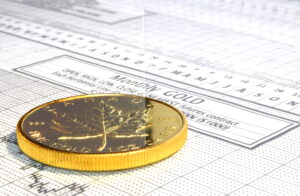 Business persons and investors use to distinguish between four major asset classes. These asset classes are Business, Real Estate, Paper Assets, and Commodities.
Business persons and investors use to distinguish between four major asset classes. These asset classes are Business, Real Estate, Paper Assets, and Commodities.
The reason for separating these four asset classes is that these four types of assets perform differently throughout different periods of the economic cycle.
It is crucial to understand the different asset classes’ different characteristics or “personalities” in order to make informed investment decisions. Today’s mass media and business or investment publications, however, do a great job of blurring the view of these, in fact, simple characteristics and mislead investors by an enormous load of background noise or outright stupid news. This happens for two reasons: (1) publications often have a vested interest in certain kinds of investments and want to “please” their ad clients and (2) the enormous speed at which these publications and their “payload” content need to be produced by junior employees or third-class journalists. Add to this the fact that commercial ticker content is largely uniform these days and you will understand whether or not it is a good idea to use media content to base investment decisions upon.
Each of the four asset classes have their particular advantages and disadvantages, ranging from complexity to risk and similar aspects. Not all asset classes fit all investors. For example, running a business requires the most effort and is the most people-intensive of the asset classes while providing the greatest profit opportunity as well as control. Paper assets, on the other hand, are the least demanding but normally offer very little control.
A more fundamental aspect though is between paper assets on one hand and commodities on the other. While paper assets do not have any intrinsic value, commodities do (as well as does real estate). The reason for this is that commodities as well as real estate address basic issues human needs (food and shelter) and will, therefore, be in demand as long as there are humans on this planet, The fact that something is of “natural” value means that its value will never go to zero. Prices will fluctuate and will either go up or down or sideways, but they will never go away. The price of shares, on the other hand, may “disappear” in an instant if a company goes bankrupt. On top, bakrupty laws provide that shareholders are compensated last and after all other debts have been settled.
These facts are well known by precious metals investors and these facts are the very reason for precious metals to be considered a safe haven investment. When times get tough and when the risk of bankruptcy increases, the “insurance policy” of holding precious metals becomes more appealing to investors. What exact portion of a portfolio is moved into precious metals is a matter of taste but classic advice usually recommended holding one third of one’s assets in precious metals. It should be noted, however, that diversification is not necessarily prudent and may even prevent profits. Rather, the asset class performing best during a particular period of the economic cycle should be allocated a larger portion.
Remember that “holding precious” metals does not mean to buy Gold or Silver ETFs. These are paper assets, just like stocks and bonds, and come with similar risks associated. Unlike physical precious metals, ETFs do have an inherent counterparty risk (bankruptcy of fund company) as well as systemic risk (everything from cash value and acceptance to the proper functioning of phone or internet connections to bank branches being open for business or ATMs running flawlessly; this means that a myriad of systems that are totally beyond your control need to be fully operational before you can expect to receive any of your money back).
The only thing you can control without any counterparty and systemic risks is the money you hold in your hands. In normal times, this includes the cash (paper money) in your pocket but if there is a currency crisis, not even your dollars or pounds or German reichmarks of 1923 are worth the paper they are printed on.
This is exactly why people buy physical bullion. It is a matter of eliminating all the risks that might materialize in financial or political crises. As banks do not make much money from customers interested in physical bullion, these people are called “Goldbugs” or all sorts of names by loyal bank employees who care about their own job and their employer rather than the customer they purport to serve. A “Goldbug” is actually someone holding gold “no matter what”, whether it is in good times or bad. That is not what is recommended for the precious metals investor, though, as physical bullion is the right investment for those times when it makes sense to load up on the “insurance policy” in order to be covered in case one of the risks above materializes.
Times like these also very easily justify the “cost” of physical bullion which is the premium over spot prices and — if you will — the fictitious interest lost which in light of current interest rates is not much anyway. As this cost is usually recovered by a small move of just a few points in the spot price, holding physical bullion usually “pays” for itself within a very short period of time.
 Bitcoin and other Crypto currencies allow users to Be Their Own Bank, but being foolish or lax with security can prove very dangerous for those bankers-to-be. We explain how advanced users keep their Crypto coins safe and introduce tools and services available for Bitcoin and other Crypto currency owners.
Bitcoin and other Crypto currencies allow users to Be Their Own Bank, but being foolish or lax with security can prove very dangerous for those bankers-to-be. We explain how advanced users keep their Crypto coins safe and introduce tools and services available for Bitcoin and other Crypto currency owners.
